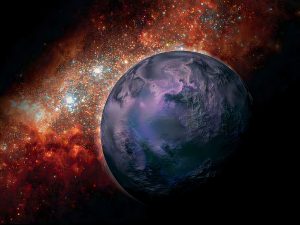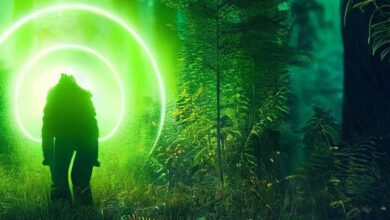Earth-like planet may be hiding in the solar system

 For many years, humanity has turned its gaze to the vast expanses of space, dreaming of finding a planet similar to Earth. And finally, astronomers come to a fascinating conclusion: a world similar to Earth may be hiding inside the solar system.
For many years, humanity has turned its gaze to the vast expanses of space, dreaming of finding a planet similar to Earth. And finally, astronomers come to a fascinating conclusion: a world similar to Earth may be hiding inside the solar system.
This potential new “Earth” has been discovered by Japanese astronomers, who speculate that it is in the Kuiper Belt. This belt is essentially a ring of donut-like objects that extend beyond the orbit of Neptune.
A study by Patrick Sophia Likavka and Takashi Ito, published in The Astronomical Journal, suggests that this mysterious Kuiper Belt (KUC) planet is up to 500 astronomical units (AU) from the Sun. This is 500 times the distance between the Earth and the Sun and even closer than the hypothetical Planet Nine.
Despite being three times as massive as the Earth, its temperatures appear to be too cold to support biological life. However, this discovery raises big questions about the nature of the solar system and its potential secrets.
“We predict,” they write, “the existence of an Earth-like planet and several trans-Neptunian objects on peculiar orbits in the outer solar system, which can serve as observationally testable signatures of the putative planet’s perturbations.”
The Kuiper Belt, home to Trans-Neptunian Objects (TNOs), lies outside Neptune’s orbit and contains millions of icy objects mixed with rocks, amorphous carbon, and volatile ices such as water and methane. Some of these objects have unusual orbits and may be affected by something large nearby.
The Japanese scientists also note that there are a significant number of objects in the Kuiper Belt with a high orbital inclination around the Sun, and their computer simulations suggest that a hypothetical planet may be responsible for this phenomenon.
However, it should be noted that this is only an assumption, and further studies will be required to confirm the existence of a planet in the Kuiper belt.
The experts also stress that this planet is different from the hypothetical Planet Nine, which is said to be in a more distant orbit and have a much larger mass.




